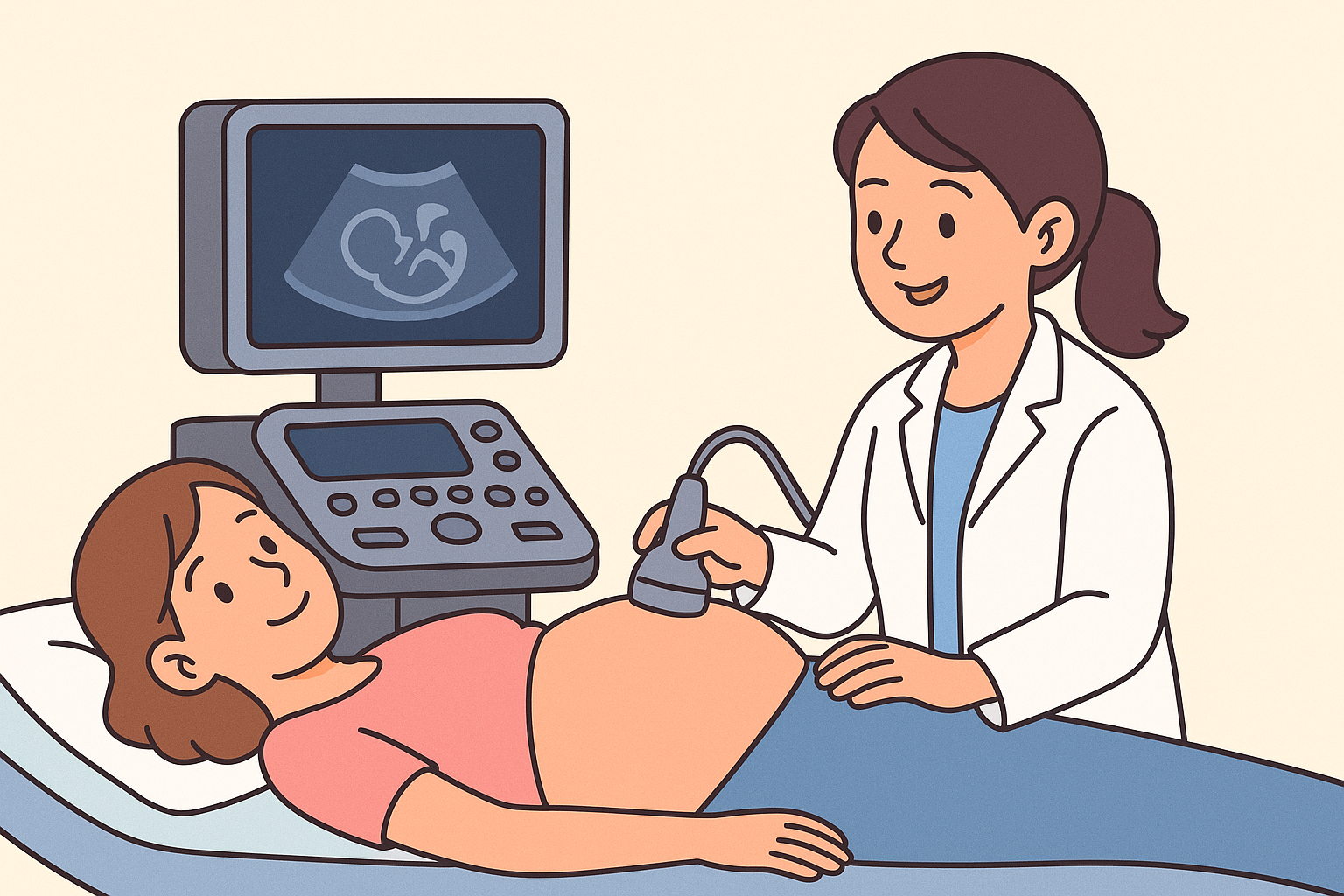Introduction
Immigrating to a new country can be a complex and exciting process, but one essential step that every applicant must complete is the immigration physical exam. This medical evaluation ensures that all immigrants meet the health standards required by immigration authorities.
While many applicants understand the need for a medical examination, they often feel unprepared when it comes to the documents and vaccinations required for the process. Missing paperwork or immunization records can delay your application or even require a repeat appointment.
In this article, we’ll walk you through the essential documents and vaccinations for your immigration physical exam, so you can prepare thoroughly and avoid unnecessary delays.
Understanding the Immigration Physical Exam
The immigration physical exam is a mandatory health screening conducted by USCIS-designated civil surgeons (for applicants within the U.S.) or panel physicians (for applicants outside the U.S.).
The purpose of this medical exam is to:
-
Ensure you are free from communicable diseases that pose public health risks.
-
Verify your vaccination records align with public health standards.
-
Assess your overall physical and mental health.
Once completed, your physician provides an official report (Form I-693 for U.S. applicants) to submit with your immigration paperwork.
Why Proper Documentation Matters
Having the correct documents ready for your immigration physical exam is crucial because:
-
It verifies your identity and eligibility for the medical test.
-
It ensures your medical history and vaccination record are accurately reviewed.
-
It helps the civil surgeon avoid duplicating vaccines or tests unnecessarily.
-
It reduces the risk of delays or rejection during the immigration process.
Without proper documentation, your doctor may not be able to complete your medical form, forcing you to reschedule.
Essential Documents You Must Bring
Here’s a detailed list of the documents required for your immigration physical exam. Having these ready will make your appointment faster and more efficient.
1. Valid Government-Issued Photo ID
Bring a valid photo ID to confirm your identity. Accepted forms include:
-
Passport
-
Driver’s license
-
National identification card
-
State-issued ID card
-
Birth certificate (for minors)
Your ID must match the details on your immigration forms. If you’re bringing children, ensure they also have proper identification or documentation verifying their age and identity.
2. Vaccination Records
Your vaccination history is a critical part of the immigration medical process. The civil surgeon will review your immunization records to confirm that you meet the vaccination requirements established by immigration authorities.
Accepted vaccination documents include:
-
Official immunization records from healthcare providers
-
International vaccination cards (like WHO “yellow cards”)
-
Records from schools, hospitals, or public health clinics
-
Laboratory tests (titers) that prove immunity
If you cannot provide written proof, the doctor may conduct blood tests or administer missing vaccines during your visit.
3. Form I-693 (For U.S. Applicants)
If you are completing your exam in the United States, you must bring Form I-693, officially called the Report of Medical Examination and Vaccination Record.
-
You can download it from the USCIS website.
-
Fill out the applicant’s portion in black ink before your appointment.
-
Do not sign the form until instructed by your civil surgeon.
After the exam, the doctor will complete and seal the form in an envelope for submission.
4. Medical History Records
Bring documentation for any chronic conditions, surgeries, or hospitalizations. This helps your civil surgeon accurately assess your health status.
Include:
-
Prescription medication lists
-
Hospital discharge summaries
-
Surgery reports
-
Chronic disease treatment plans (e.g., diabetes, hypertension, asthma)
Being transparent about your medical history ensures that your results are accurate and compliant.
5. Recent Lab Test Results (If Applicable)
If you recently underwent tests related to tuberculosis, syphilis, or gonorrhea, bring copies of those results. The doctor may accept them if they meet official requirements, saving you from repeating the same tests.
6. Eyeglasses or Contact Lenses
If you wear glasses or contact lenses, bring them to your appointment, as vision checks may be part of your examination.
7. Payment Method
Most clinics require payment at the time of service. Confirm accepted payment methods in advance—some clinics may not take insurance for immigration medical exams.
8. Interpreter (If Needed)
If you are not fluent in English, bring a trusted interpreter to ensure clear communication during the immigration physical exam. Some clinics may provide interpreters upon request.
Vaccinations Required for the Immigration Physical Exam
Vaccinations are a major component of your immigration physical exam, ensuring that you meet national immunization standards.
The exact vaccines required depend on your age, medical history, and current CDC guidelines, but below is a list of the most common ones.
1. MMR (Measles, Mumps, Rubella)
-
Required for applicants born after 1957 who cannot show immunity.
-
Proof of previous infection or lab results showing immunity may suffice.
2. Tdap (Tetanus, Diphtheria, Pertussis)
-
Mandatory for all adults and children according to age-appropriate schedules.
-
A Td booster is recommended every 10 years.
3. Varicella (Chickenpox)
-
If you never had chickenpox or the vaccine, you must receive the varicella vaccine.
-
Alternatively, a blood titer test can confirm immunity.
4. Polio
-
Required for children and adults who have not completed the primary polio vaccine series.
5. Influenza (Flu Vaccine)
-
Required during flu season (typically October through March).
-
Annual vaccination is mandatory for applicants aged 6 months and older.
6. Hepatitis B
-
Required for applicants under 19 years old, and often recommended for adults without prior vaccination.
7. COVID-19 Vaccine
-
Applicants must show proof of full vaccination with an approved COVID-19 vaccine.
-
Acceptable documentation includes official vaccination cards or records from authorized health authorities.
8. Meningococcal Vaccine
-
Required for adolescents and college-age applicants (usually between 11–18 years).
9. Pneumococcal Vaccine
-
Recommended for adults over 65 or individuals with specific chronic conditions.
If You Don’t Have Vaccination Proof
Don’t panic if you can’t find your vaccination records. Here’s what you can do:
✅ Request copies from previous healthcare providers, schools, or public health departments.
✅ Get a blood test (titer) to check for immunity.
✅ Receive the required vaccines during your immigration physical exam.
The civil surgeon will document all newly administered vaccines on your official medical form.
How the Doctor Reviews Your Vaccination Records
During the appointment, your civil surgeon will:
-
Review your vaccination documents.
-
Determine which vaccines you’ve already received.
-
Identify any missing vaccines based on your age and health condition.
-
Administer or schedule the necessary vaccinations.
-
Record all details on your Form I-693 or medical report.
Once your vaccinations are up to date, your doctor will provide proof for immigration authorities.
Why Vaccinations Are Crucial for Immigration
Vaccinations are not just a bureaucratic requirement—they play a key role in public health. The goals include:
-
Preventing disease outbreaks within communities.
-
Protecting vulnerable populations, such as children and the elderly.
-
Ensuring compliance with international health regulations.
-
Reducing healthcare costs by preventing avoidable illnesses.
By meeting vaccination standards, you demonstrate your commitment to public safety and eligibility for immigration benefits.
What Happens If Vaccines Are Missing or Incomplete
If your doctor finds missing vaccines during your immigration physical exam, they will:
-
Administer the required doses during your visit, if medically appropriate.
-
Record all vaccinations on your official form.
-
Inform you of any follow-up doses needed later.
In rare cases where you cannot receive a vaccine due to medical contraindications (e.g., allergies or pregnancy), the doctor will note an exemption on your form.
How to Organize Your Documents for the Appointment
To ensure a smooth exam process:
-
Keep all documents in a folder or binder.
-
Arrange vaccination records chronologically.
-
Attach your Form I-693 on top for easy access.
-
Label copies clearly with your full name and birth date.
Organization shows preparedness and helps the doctor complete your paperwork efficiently.
Frequently Asked Questions (FAQs)
1. Can I use vaccination records from another country?
Yes. International vaccination records are accepted if they are in English or accompanied by an official translation.
2. What if I’m pregnant?
Certain vaccines are not administered during pregnancy. Your civil surgeon will document a medical exemption for the missing vaccines.
3. How much do vaccinations cost during the exam?
Vaccine prices vary by clinic, but they typically range from $25 to $150 per dose. Confirm prices before your appointment.
4. Do I need to fast before the immigration physical exam?
No fasting is required. However, avoid heavy meals right before your appointment.
5. How long are the exam results valid?
Your medical exam results are valid for two years from the date the doctor signs the report.
Conclusion
Preparing the correct documents and vaccinations for your immigration physical exam ensures a smooth, stress-free process. By bringing your photo ID, vaccination records, Form I-693, and medical history, you help your doctor complete the evaluation efficiently.
Staying up to date with your required vaccines—like MMR, Tdap, Varicella, and COVID-19—not only fulfills immigration requirements but also protects your health and the health of others.




